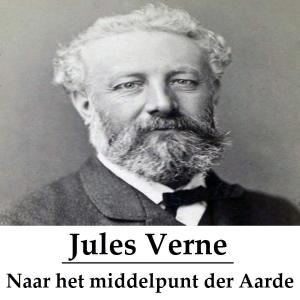| Author: | Charles King | ISBN: | 1230000481540 |
| Publisher: | Consumer Oriented Ebooks Publisher | Publication: | June 11, 2015 |
| Imprint: | Language: | English |
| Author: | Charles King |
| ISBN: | 1230000481540 |
| Publisher: | Consumer Oriented Ebooks Publisher |
| Publication: | June 11, 2015 |
| Imprint: | |
| Language: | English |
That night poor Doyle's spirit took its flight, and the story of misery he had to tell, partly by scrawling with a pencil, partly by gesture in reply to question, partly in painfully-gasped sentences, a few words at a time, was practically this. Lascelles and his party did indeed leave him at the Pelican when he was so drunk he only vaguely knew what was going on or what had happened in the bar-room where they were drinking, but his wife had told him the whole story. Lascelles wanted more drink,—champagne; the bar-tender wanted to close up. They bought several bottles, however, and had them put in the cab, and Lascelles was gay and singing, and, instead of going directly home, insisted on stopping to make a call on the lady who occupied the upper floor of the house Doyle rented on the levee. Doyle rarely saw her, but she sometimes wrote to Lascelles and got Bridget to take the letters to him. She was setting her cap for the old Frenchman. "We called her Mrs. Dawson." The cabman drove very slowly through the storm as Doyle walked home along with Bridget and some man who was helping, and when they reached the gate there was the cab and Waring in it. The cab-driver was standing by his horse, swearing at the delay and saying he would charge double fare. Doyle had had trouble with his wife for many years, and renewed trouble lately because of two visits Lascelles had paid there, and that evening when she sent for him he was drinking in Waring's room, had been drinking during the day; he dreaded more trouble, and 'twas he who took Waring's knife, and still had it, he said, when he entered the gate, and no sooner did he see Lascelles at his door than he ordered him to leave. Lascelles refused to go. Doyle knocked him down, and the Frenchman sprang up, swearing vengeance. Lascelles fired two shots, and Doyle struck once,—with the knife,—and there lay Lascelles, dead, before Doyle could know or realize what he was doing. In fact, Doyle never did know. It was what his wife had told him, and life had been a hell to him ever since that woman came back. She had blackmailed him, more or less, ever since he got his commission, because of an old trouble he'd had in Texas.
That night poor Doyle's spirit took its flight, and the story of misery he had to tell, partly by scrawling with a pencil, partly by gesture in reply to question, partly in painfully-gasped sentences, a few words at a time, was practically this. Lascelles and his party did indeed leave him at the Pelican when he was so drunk he only vaguely knew what was going on or what had happened in the bar-room where they were drinking, but his wife had told him the whole story. Lascelles wanted more drink,—champagne; the bar-tender wanted to close up. They bought several bottles, however, and had them put in the cab, and Lascelles was gay and singing, and, instead of going directly home, insisted on stopping to make a call on the lady who occupied the upper floor of the house Doyle rented on the levee. Doyle rarely saw her, but she sometimes wrote to Lascelles and got Bridget to take the letters to him. She was setting her cap for the old Frenchman. "We called her Mrs. Dawson." The cabman drove very slowly through the storm as Doyle walked home along with Bridget and some man who was helping, and when they reached the gate there was the cab and Waring in it. The cab-driver was standing by his horse, swearing at the delay and saying he would charge double fare. Doyle had had trouble with his wife for many years, and renewed trouble lately because of two visits Lascelles had paid there, and that evening when she sent for him he was drinking in Waring's room, had been drinking during the day; he dreaded more trouble, and 'twas he who took Waring's knife, and still had it, he said, when he entered the gate, and no sooner did he see Lascelles at his door than he ordered him to leave. Lascelles refused to go. Doyle knocked him down, and the Frenchman sprang up, swearing vengeance. Lascelles fired two shots, and Doyle struck once,—with the knife,—and there lay Lascelles, dead, before Doyle could know or realize what he was doing. In fact, Doyle never did know. It was what his wife had told him, and life had been a hell to him ever since that woman came back. She had blackmailed him, more or less, ever since he got his commission, because of an old trouble he'd had in Texas.















